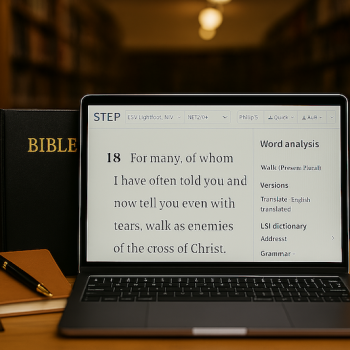One even finds cosmic cynicism in the Bible, from the mouth of Qoheleth. Ecclesiastes got included in the canon largely because it's a kind of reverse preparatio evangelica for the Messiah. But it only works that way when messianism becomes apocalyptic and universal, which is just what we find in Judaism as it approached the time of Jesus of Nazareth. Ultimately, the only antidote to cosmic cynicism is the belief that the Universe is both rational and good, because the Reason that created it has a reason based in Love for doing so. That belief was the engine behind the development of modern science, which began in the Christian Middle Ages.
For most of us, though, the underlying belief in the goodness and rationality of the cosmos comes only by faith through an authority that transcends human reason. We're pretty cynical about authority these days. And that's the other main reason it's so hard to resist cosmic cynicism. We accept the authority of scientists, more or less, because science works, more or less, in a way that observation and common sense enable us to appreciate. But the things of the spirit? If there is such a thing as "spirit" at all, we seem to face only competing authorities about what it is and what, if anything, it's for.
That is why, I believe, Newman was right to argue that in the end, the only choices are Catholicism and atheism. That choice is not logically exhaustive, but I am convinced the future will show it to be existentially so.
Michael Liccione earned his Ph.D. in philosophy from the University of Pennsylvania and has taught in a variety of institutions, mostly Catholic. He is also a freelance writer whose work has been published in numerous Catholic publications. He blogs at Sacramentum Vitae, where this piece first appeared. It is reprinted with permission.




